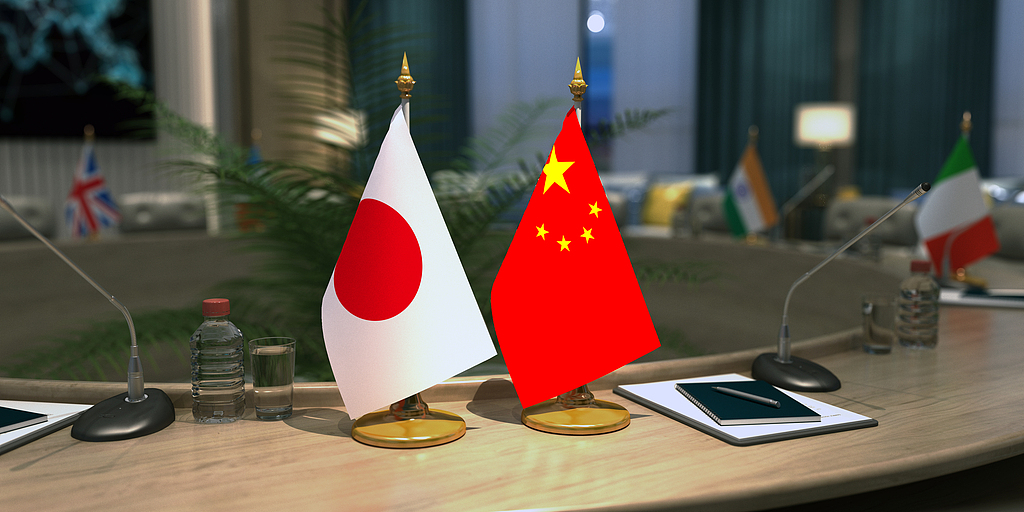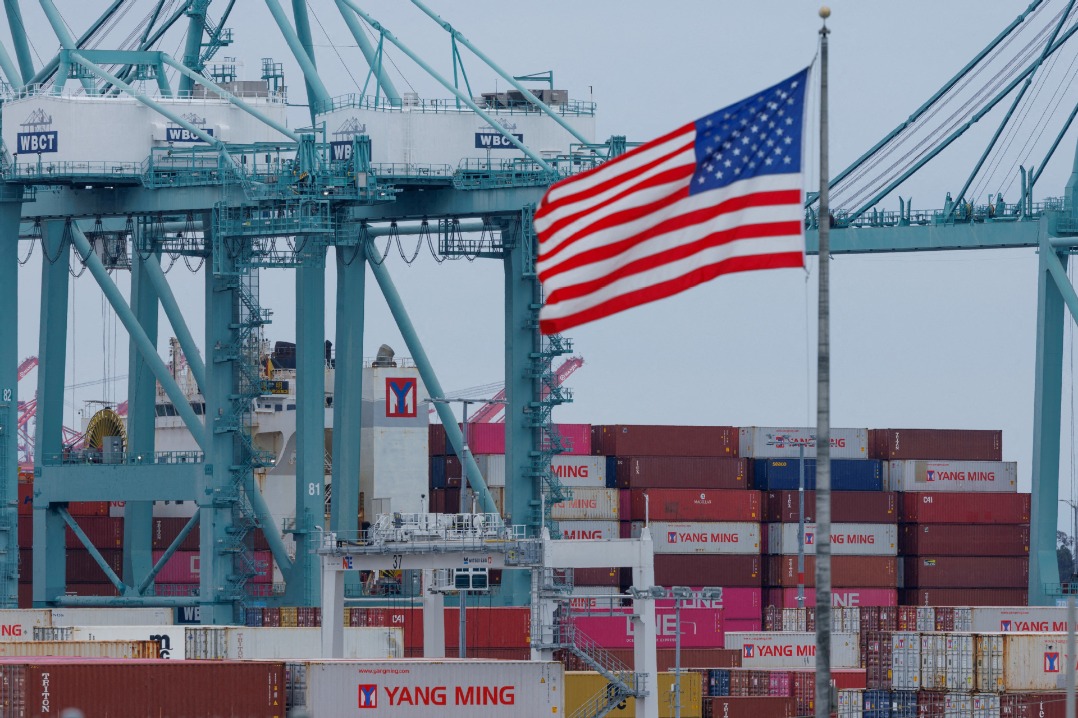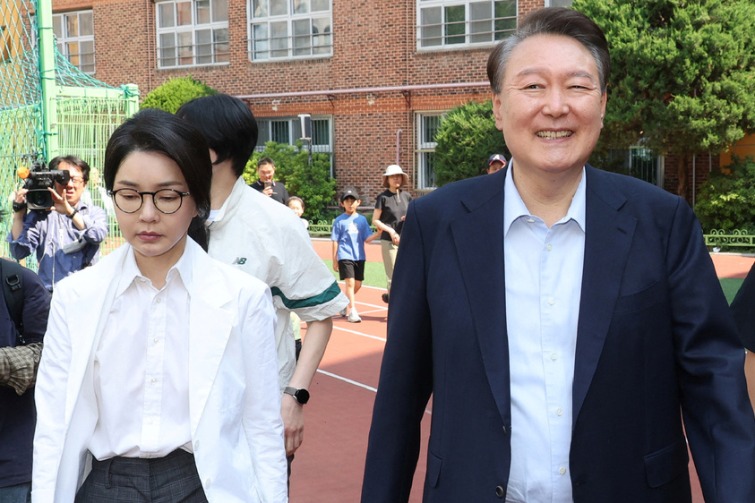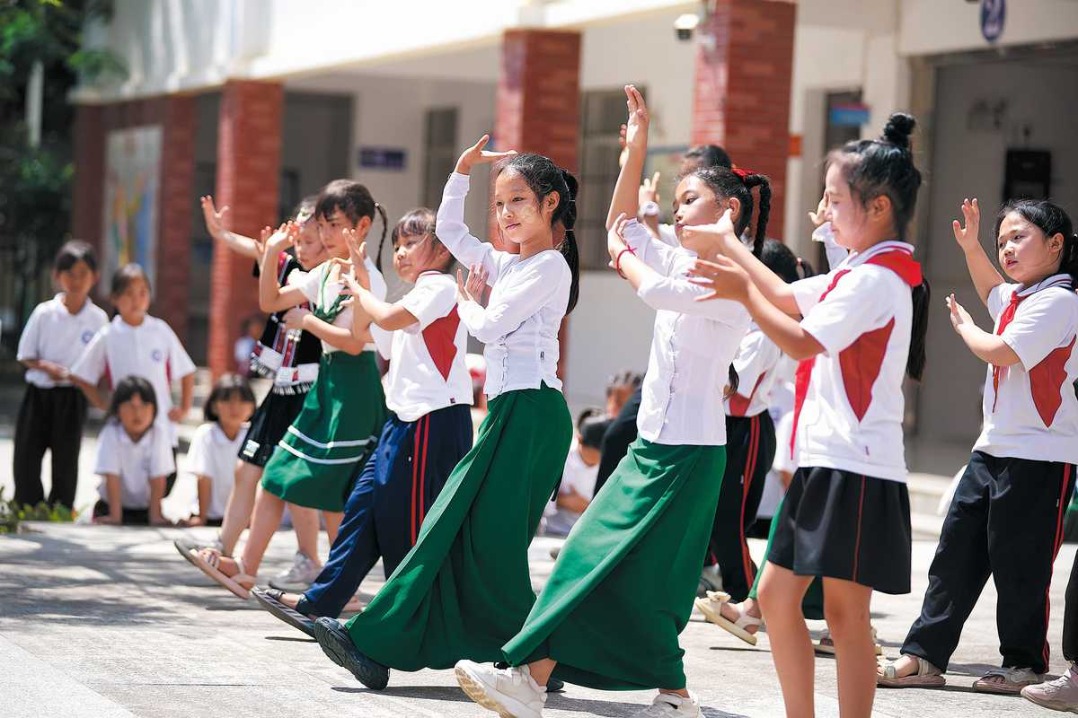Proactive moves needed to steady Sino-Japanese ties


Around 2,500 years ago, during China's Spring and Autumn Period (770-476 BC) and Warring States Period (475-221 BC), philosopher Mozi advocated the principles of "universal love and nonaggression". By universal love, he meant treating all people equally and offering mutual support — an idea that in modern terms reflects a commitment to mutual respect and peace.
Mozi also urged the powerful warlords of his time to refrain from launching aggressive wars that cost human lives. He stood firmly for defensive warfare, sending his disciples to support weaker states by helping them develop strong defenses using the most advanced military strategies and technologies available at the time.
Though his pacifist ideals were dismissed as unrealistic in an era dominated by conflict among the seven major warring states, Mozi's philosophy holds renewed relevance today. In the 21st century, the pursuit of nonaggression and peace between Japan and China, and more broadly in East Asia and beyond, can be seen as a modern embodiment of his vision — a continuation of his legacy across time and borders.
In 1985, 40 years after the end of World War II, then West German president Richard von Weizsacker delivered a landmark speech in which he said "anyone who closes his eyes to the past is blind to the present". He called for a clear-eyed remembrance of history, arguing that confronting the past is essential to preventing future conflicts.
As we mark the 80th anniversary of the end of World War II, the number of people who lived through the war is steadily declining, and memories of its devastation are beginning to fade. Meanwhile, conflicts and even wars have remained in some regions in recent decades. In this context, it is important to reflect on history and search for solutions that can bring about durable peace not only in East Asia but in other parts of the world.
In the past 80 years, Japan has maintained a policy of nonaggression. This is, in the first place, due to the Constitution of Japan, which renounces war, prohibits the maintenance of military forces and denies the right of belligerency.
Second, in the 1972 Japan-China joint communique that normalized diplomatic relations, both nations explicitly pledged to settle all disputes through peaceful means, not by force — an explicit vow of nonaggression. This principle was further solidified in the 1978 Japan-China Treaty of Peace and Friendship, which, upon ratification by the National Diet, Japan's national legislature, legally codified a lasting relationship of peace and goodwill between the two countries. The treaty also incorporated an anti-hegemony clause, affirming that neither side would seek hegemony nor support hegemonic actions. Together, these landmark agreements have underpinned the nonaggressive stance between Japan and China.
Third, the deepening of economic and trade ties between Japan and China has served as a powerful deterrent against any conflict. Bilateral trade expanded dramatically from $913.6 million in 1971 to $308.27 billion in 2024, marking a more than 300-fold increase.
Japan also supported China's reform and opening-up policy, providing about 3.7 trillion yen ($25.5 billion) in Official Development Assistance, which mainly includes low-interest loans, over four decades.
This program played a significant role in China's infrastructure development.
However, in recent years, Japan has undergone significant changes in its defense posture. In 2014, Japan's Cabinet reinterpreted its constitution to allow the nation to exercise the right of collective self-defense, enabling its Self-Defense Forces to engage in overseas military operations. Then, in 2022, citing changes in the East Asian security environment, Japan implemented a major shift in its security policy by approving the possession of counterstrike capabilities and doubling its defense budget.
These developments marked a sharp departure from Japan's postwar principles of exclusively defense-oriented policy and its longstanding cap of limiting military expenditures to 1 percent of GDP.
As a result, the very foundations of Japan's pacifist constitution are now being shaken.
Amid intensifying US-China rivalry, Japan is increasingly aligning itself with the United States under the framework of the US-Japan alliance, rapidly transforming its southwestern islands into missile deployment bases.
To mitigate growing security risks and avoid unintended clashes, Japan and China must take proactive steps.
In addition to holding regular summits and ministerial-level meetings, it is crucial to effectively implement crisis management mechanisms, including military-to-military exchanges and the use of defense hotlines.
At the same time, civil society must raise its voice to help ensure that the two countries do not enter into war. Scholars and researchers have a key role to play by engaging directly with diplomats, defense officials and academics.
These dialogues — grounded in the principles of the 1972 joint communique and the 1978 Japan-China Treaty of Peace and Friendship — can help reinforce mutual understanding and advance diplomacy and dialogue over military solutions. Ultimately, such efforts will become essential for reinforcing a shared commitment to Japan-China nonaggression and promoting lasting peace in East Asia.
In 2023 and 2024, the Tokai Japan-China Relations Society sent delegations to China for direct dialogue with key institutions, including the Ministry of Foreign Affairs' Department of Asian Affairs, the Institute of Japanese Studies at the Chinese Academy of Social Sciences, the Shanghai Institutes for International Studies, the Shanghai Academy of Social Sciences, Fudan University's Center for Japanese Studies, and the Party School of Zhejiang Provincial Committee of the Communist Party of China.
These in-depth exchanges fostered greater mutual understanding on issues of diplomacy, security and public perception. The visits also affirmed that the Chinese side shares a strong interest in preserving peace and preventing conflict in East Asia.
The Japan-China Treaty of Peace and Friendship, which carries a 10-year term, has been renewed without objection at each interval. The upcoming 50th anniversary in 2028 will mark a crucial moment to reaffirm and reflect on the treaty's original principles.
Looking ahead, Japan and China might draw inspiration from the 1963 Elysee Treaty between West Germany and France, which laid the groundwork for postwar reconciliation. That agreement institutionalized regular engagement, including at least two summit meetings and three foreign ministers' meetings annually, alongside ongoing youth exchanges, paving a way from confrontation to reconciliation, cooperation and peace.
Likewise, exploring the framework of the Organization for Security and Co-operation in Europe, which aims to prevent conflict, could offer valuable insights for developing a similar mechanism tailored to the East Asian context.
The author is an emeritus professor at Nagoya University of Foreign Studies, specializing in Japan-China relations and East Asian security, and serves as vice-president of the Japan-China Relations Society.
The views don't necessarily reflect those of China Daily.































